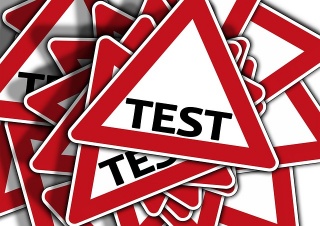The questions which follow provide a basic knowledge test of selected concepts covered in this learning pathway:
Entrepreneurs as small business owners.
The questions published at the end of each learning pathway are re-used for the knowledge test for learners interested in earning a digital badge or certificate of participation for the Introduction to entrepreneurship (IENT101) micro-course. Please consult the Certify participation page for more information.
Indicate whether the following statements are true or false:
- Most small businesses are publicly owned.
- True
- That is not the right answer.
- False
- Well done - you are right.
- Small business owners usually have someone else managing their business, so that they can focus on strategy.
- True
- That is not the right answer.
- False
- Well done - that statement is false.
- Small business owners and entrepreneurs generally have different leadership styles.
- True
- Yes, this statement is true.
- False
- Think again - this statement is true.
- Small businesses help contribute to their local community.
- True
- False
- Incorrect - this statement is true.
- The financial risks are low for small business owners.
- True
- This statement is not true - the financial risks are often high for small business owners.
- False
- Well done - this statement is false.
Multiple choice questions
- Which ONE of these is an advantage of small business ownership?
- Time
- This is unlikely! Running your own business is very time-consuming.
- You’ll enjoy every aspect of your work
- No, try again. As a small business owner, there may be many aspects of your role that you won’t enjoy, such as hiring and firing people, or keeping company accounts.
- Learning opportunities
- Yes, that’s right. Running your own business provides many learning opportunities.
- Stress-free lifestyle
- No, not really - although being your own boss can be an enjoyable lifestyle for many people, there are also multiple things to think about, and you are responsible for everything.
- SWOT stands for:
- Saving, Working, Owning, Trading
- Strengths, Weaknesses, Opportunities, Threats
- Yes, that’s right. Analysing these things can help you to identify internal and external factors that could affect your business.
- Sales, Wages, Objectives, Targets
- Safety, Workforce, Organisation, Training
- Why is a SWOT analysis important? (Select the most correct option.)
- It’s the first thing potential investors will want to see
- This is partially true. Potential investors will want to see a business plan, which may refer to strategies based on your SWOT analysis.
- It allows you to share information easily with your customers
- It prioritises issues for you
- No, it can help you identify issues, but it is up to you to determine what your priorities are.
- It helps you develop/improve your business strategy and assess any changes in the business environment
- Yes, that’s right. You can conduct a SWOT analysis at any point as a business owner - it’s something you should do at least once a year.
- Indicate which ONE of the following statements about SWOT analysis is FALSE:
- Strengths and Weaknesses are considered as internal factors
- This is true; these are internal to the company (factors like location and reputation).
- Opportunities and Threats can be either internal or external
- This is false. Opportunities and threats are external factors; things that you cannot change.
- It is a good idea for a group of people to conduct a SWOT analysis, rather than just one person
- Yes, this is true. Multiple perspectives and insights (e.g. from management, stakeholders, and customers) can be very valuable in a SWOT analysis.
- Assets belonging to the company, without outstanding debt, are normally considered ‘Strengths’ in a SWOT analysis
- This is true. Assets include capital, patents, fixed and moveable property, and can be sold to improve liquidity.
